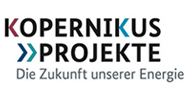Rheticus
How the Kopernikus partner project Rheticus produces climate-friendly chemicals - using bacteria
Rheticus originated from the Kopernikus project P2X. Its aim is the same: to convert renewable energy into other forms of energy. Microorganisms can be used together with electricity, CO2, and water to form special chemicals that are essential for the chemical industry.
Germany aims to be largely climate-neutral by 2050. To be able to achieve this goal, the country needs ways of using carbon dioxide (CO2) as a raw material rather than releasing it into the atmosphere as a harmful exhaust gas. The Rheticus project aims to make this possible: in the first stage of the project – co-electrolysis – CO2 and water will be converted into hydrogen and carbon monoxide using renewably generated electricity. Scientists call the mixture of these two substances “syngas”.
Rheticus researchers then turn to a second method: fermentation. This involves feeding the syngas that they have generated to microorganisms (bacteria from the genus Clostridium). The microorganisms subsist on gases containing carbon monoxide. They in turn excrete special chemicals such as butanol and hexanol, which would otherwise have to be produced through an elaborate chemical process involving multiple steps.
Hexanol is especially interesting to the Rheticus researchers, because it can be used to produce plastics, dietary supplements, and fuels. And that is precisely the plan. The project team is currently working to establish a pre-industrial test plant in Marl. They hope to prove at this plant that hexanol can be manufactured continuously and at a large scale by means of power-to-X technologies and bacteria.
If the undertaking is successful, it will be possible to make the production of special chemicals, an otherwise very CO2-intensive process, more environmentally friendly in the very near future. To date, the results of the project are promising.


